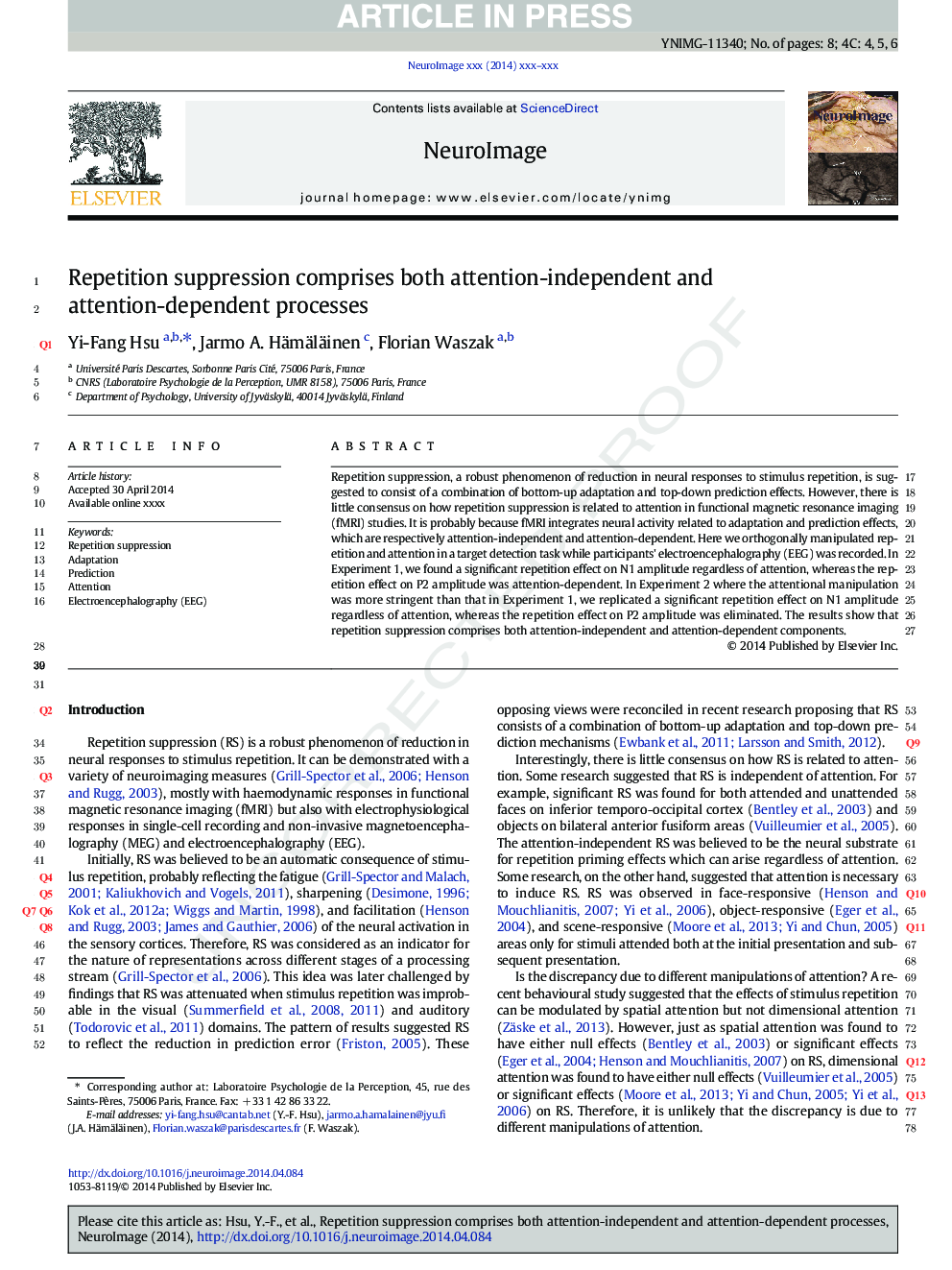| Article ID | Journal | Published Year | Pages | File Type |
|---|---|---|---|---|
| 6026909 | NeuroImage | 2014 | 8 Pages |
Abstract
Repetition suppression, a robust phenomenon of reduction in neural responses to stimulus repetition, is suggested to consist of a combination of bottom-up adaptation and top-down prediction effects. However, there is little consensus on how repetition suppression is related to attention in functional magnetic resonance imaging (fMRI) studies. It is probably because fMRI integrates neural activity related to adaptation and prediction effects, which are respectively attention-independent and attention-dependent. Here we orthogonally manipulated stimulus repetition and attention in a target detection task while participants' electroencephalography (EEG) was recorded. In Experiment 1, we found a significant repetition effect on N1 amplitude regardless of attention, whereas the repetition effect on P2 amplitude was attention-dependent. In Experiment 2 where the attentional manipulation was more stringent than that in Experiment 1, we replicated a significant repetition effect on N1 amplitude regardless of attention, whereas the repetition effect on P2 amplitude was eliminated. The results show that repetition suppression comprises both attention-independent and attention-dependent components.
Related Topics
Life Sciences
Neuroscience
Cognitive Neuroscience
Authors
Yi-Fang Hsu, Jarmo A. Hämäläinen, Florian Waszak,
